Biden Administration Still Wants To Pursue Nuclear Deal With Iran
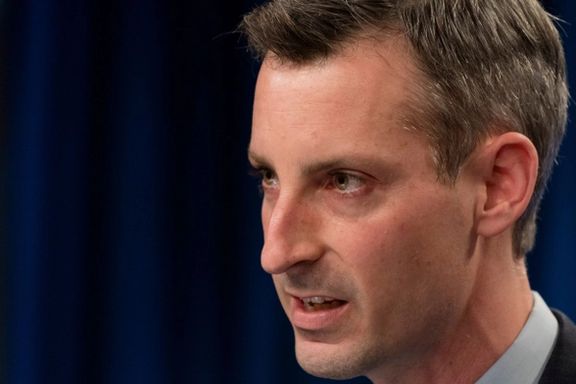
The United States has reiterated that it still believes a return to the 2015 Iran nuclear deal is in its interest, and it continues to pursue the diplomatic path.

The United States has reiterated that it still believes a return to the 2015 Iran nuclear deal is in its interest, and it continues to pursue the diplomatic path.
State Department spokesperson Ned Price told reporters on Monday that “We will continue to forge ahead with efforts, with dialogue via the – via our partners, including the European Union, to seek to achieve a mutual return to compliance with the JCPOA for as long as we determine that a mutual return to compliance would be in our interests.“
Earlier this year, the Biden administration had said that it would consider the end of February as the latest date it was willing to wait for progress in the talks.
In mid-March, negotiation that started in April 2021 came to a standstill as Iran demanded the removal of its Revolutionary Guard (IRGC) from a US list of terrorist organizations. Washington has not agreed to the condition, saying that i tis ready to remove nuclear sanctions, but the terror designation is a separate issue for which Iran has to negotiate over other issues.
Price reiterated that position on Monday. „If Iran wants to seek – wants to put issues on the table that are outside the confines of the JCPOA, Iran will of course have to be in a position to make concessions on those issues. That’s just the very nature of any negotiation.“
Asked if he had any comment about reports that the European Union coordinator in the Vienna talks wants to visit Iran again, Price said the US supports his efforts.
Opposition to retoring the JCPOA has grown in the US, especially rejection of any concession on delisitng the IRGC.
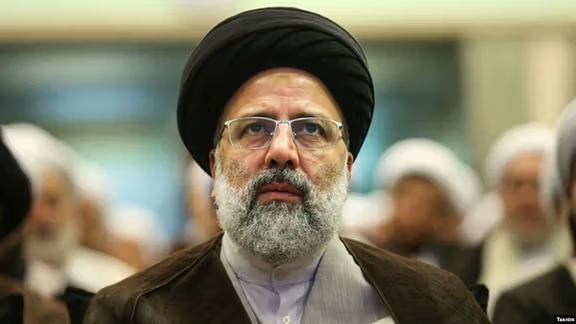
Iran’s president is willing to reach a nuclear deal but “others” oppose it a politician says as others believe Tehran was counting on a Russian victory in Ukraine.
Reformist Ashraf Boroujerdi has said, following a meeting with Raisi along with two dozen politicians last week, that "Raisi himself has come to the conclusion that a nuclear agreement should be reached, but some others who have the upper hand in the government are adamant that Tehran should not sign an agreement with Washington." However, she did not name the elements she believed have the upper hand in making decisions for the government.
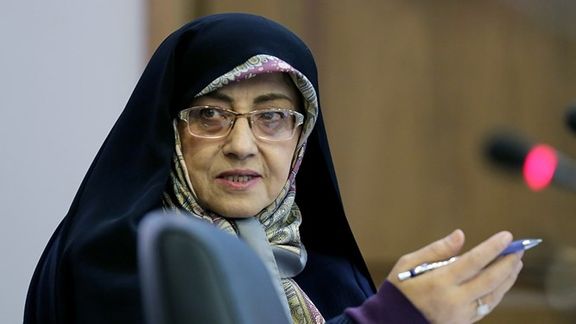
Meanwhile, Iranian academic and reformist political activist Sadegh Zibakalam says Iranian officials were misled to believe that Russia will occupy Ukraine in less than one week and .
The officials believed Russia would plant a puppet government in Kiyv and become the master of the world and Iran would benefit from the situation as Russia's ally, said Zibakalm in a live Instagram video as reported by Didban Iran [Iran Monitor] website.
Zibakalam, who was sure in the interview that Iran and the United States will inevitably come to an agreement, expressed concern over "the regional countries' alliance against Iran and the destructive role played by Russia and China."
He said: "We are upbeat about the rise in oil price, and we know that President Ebrahim Raisi is right about a boost in Iran's oil exports, because with the United States deliberately ignoring its sanctions on Iran's oil industry Iran has been selling oil to some Chinese private companies at prices no one is aware of. However, if the Americans make sure that there will be no agreement with Iran, they will twist the arms of the Chinese in a way that they would forget about purchasing oil from Iran."
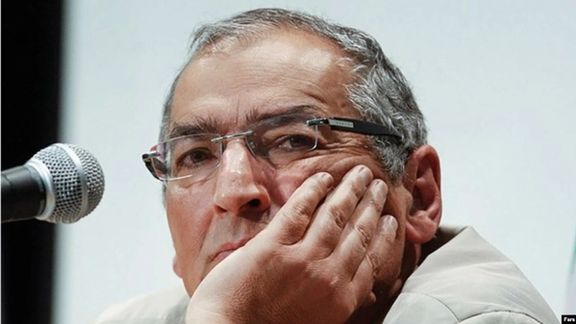
Zibakalam further added that "a favorable breeze is reaching Iran from the direction of the United States. However, it appears that the Raisi administration has no strategy about how to benefit from the situation." Zibakalam went on to say that "We know today that Deputy Foreign Minister Abbas Araqchi had come to an agreement with the US side before President Ebrahim Raisi took office, but the new administration initially ignored Araqchi's achievement before finally realizing that the negotiations should take place based on the frameworks provided by Araqchi."
Zibakalam then quoted former Culture Minister Ali Jannati as saying that "it was agreed in the talks by Araqchi that the IRGC should be delisted as a terrorist organization and the sanctions against it should be lifted."
The academic said that the United States has now realized it has not managed to stop Iran from high-level uranium enrichment, and Iran's missile development program as well as cut Iran's long hands from the region, at least in the short run. As a result, United States has come to the conclusion that it should adopt a milder policy toward Iran. However, Iran has misunderstood this soft approach. Zibakalam stressed that Iran has wrongly interpreted the change in US policy as a retreat.
In an interview with Didban Iran, former diplomat Fereidoun Majlesi also said that the Revolutionary Guard (IRGC) does not want to be removed from the US list of terrorist organizations because in that case Iran would sign a new nuclear agreement with the United States.
Majlesi argued that the IRGC has an international agenda that may not be implemented if there is an agreement between Iran and the United States. He said that is also the reason why there is a resistance in Iran against abiding by the regulations of the Financial Action Task Force (FATF).
Like Zibakalam, Majlesi also agreed that Russia's invasion of Ukraine has made a nuclear agreement with the United States harder to reach. "Iran's official support for Russia in the hope of benefitting from Russia's measure adversely affected the negotiations to revive the nuclear agreement (JCPOA). But Russians only follow their own interests. There is no reason for them to follow Iran's interests because they do not need us," said Majlesi.

Iranian officials were silent on Monday regarding reports that the European Union wants to send its envoy back to Tehran to jump start the stalled nuclear talks.
Iran on Monday was in a total confusion, as it was not clear if Ramadan ended or not, and if there was a public holiday. The foreign ministry did not hold its weekly press briefing.
Western diplomats told the Wall Street Journal on Sunday that the EU is offering to send its top negotiator Enrique Mora to Tehran again to persuade Tehran to show flexibility.
Mora, the senior EU official chairing the Vienna process, has told Iranian negotiators he is ready to return to Tehran to open a pathway through the deadlock, diplomats told the Wall Street Journal. Mora failed to convince Tehran to return to the talks during his March 27 visit.
Talks in Vienna to restore the 2015 nuclear deal, Joint Comprehensive Plan of Action (JCPOA), have been in limbo since mid-March when Iran insisted that its Revolutionary Guard (IRGC) be removed from the US list of terrorist organizations. The US has not agreed to the demnd.
Reuters reported on Monday that the West has almost given up on the process and is contemplating what to do next.
"They are not yanking the IV out of the patient's arm ... but I sense little expectation that there is a positive way forward," one source, who like others quoted spoke on condition of anonymity because of the issue's sensitiviy, told Reuters.
Western diplomats told the Wall Street Journal that they want to put the onus back on Tehran, making it clear the talks could fail unless Tehran took a step to end the stalemate. Mora, they said, will try to persuade Tehran to leave the issue of IRGC's delisting to a future point and sign off on the deal now. Tehran has so far not responded to the proposition, the report said.
In a phone talk with Iranian Foreign Minister Hossein Amir-Abdollahian's on April 20, the EU foreign policy Chief, Josep Borrell expressed frustration over the pause in the talks and called for fresh contacts between Enrique Mora and Iran’s lead negotiator Ali Bagheri-Kani.
Iran insists that it will not give up on its demand for the removal of the IRGC from the US list of Foreign Terrorist Organizations (FTO), calling it a 'red line' it will not cross at any cost
The Biden administration is adamant that it will only negotiate the delisting of the IRGC if Tehran also agrees to discuss other issues which are important for Washington, presumably Iran's aggressive regional policies and support for militant groups, which are also outside the JCPOA purview.
Despite the deadlock in the talks that appears to have much to do with the IRGC regional activities and pledge to take revenge on American officials for ordering the targeted killing of Ghasem Soleimani, officials in Tehran have shown no signs of softening their rhetoric in the past few weeks
Soleimani, commander of the Qods (Quds) Force, the IRGC's extraterritorial arm, was killed in a drone attack in Baghdad in January 2020 on Trump's orders.
The pause in talks has given ample opportunity for JCPOA critics in both Tehran and Washington. The Republicans have highlighted the prospect that lifting US ‘maximum pressure’ sanctions on Iran in return for Tehran accepting JCPOA limits on its nuclear program would see Tehran repatriate billions of dollars currently frozen by creditors wary of punitive US action.
US Democratic Senator Bob Menendez (NJ) reiterated Sunday that no nuclear deal with Ian was better than a bad deal. “It’s 2022. It's not 2014. Some of the original deal sunsets are even closer… to ending a pathway where Iran could ultimately achieve its goal,” a reference to the belief that Tehran is bent on producing nuclear weapons.
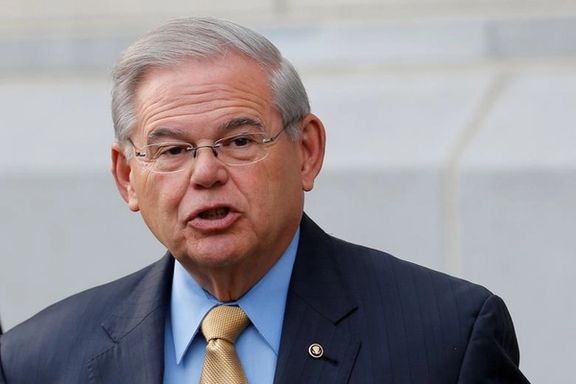
US Democratic Senator Bob Menendez (NJ) has reiterated that no nuclear deal with Ian is better than a bad deal.
Menendez said on Sunday that, “It’s 2022. It's not 2014. Some of the original deal sunsets are even closer… to ending a pathway where Iran could ultimately achieve its goal,” a reference to the belief that Tehran is bent on producing nuclear weapons.
His remarks came as negotiations between Tehran and world powers seem to have come to a dead end while the European parties are making a fresh push to revive the talks.
According to Western diplomats close to the talks, the European Union coordinator of the negotiations, Enrique Mora, has told Iranian counterparts he is ready to return to Tehran to open a pathway, hoping to break the stalemate.
The negotiations, which started in Vienna in April 2021, have been on a protracted pause since March 11, as the Islamic Republic demanded removing Iran’s Revolutionary Guard (IRGC) from the US list of terrorist organizations.
Western and Iranian officials said the text of the nuclear deal was virtually complete and technical issues have been resolved but political issues have remained.
There is bipartisan opposition in Washington and anger among the US Middle Eastern allies over the prospect of the terrorist designation being removed.
The US says the only way it would take that step is if Iran is ready to discuss issues related to its role in the region.
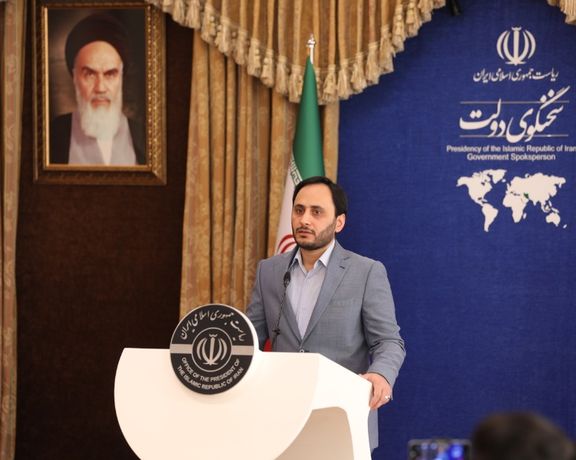
Iranian government spokesman Ali Bahadori Jahromi says the Islamic Republic will not leave the negotiating table in Vienna until its rights are met.
Jahromi told IRNA on Sunday that, "We currently have nothing new to say about the Vienna Talks" to restore the 2015 nuclear agreement between Tehran and the world powers.
He made the remarks as reports say the Unites States is getting closer to admitting the failure of the talks while many US lawmakers are calling on the administration to walk out of the talks.
Apparently implying that the nuclear talks are not the Iran’s top priority, he said, “Negotiations are one of the current issues on the table of the Islamic Republic along with other issues in the international arena”.
“Iran will never back down from international diplomatic mechanisms until it fully and comprehensively protects the rights of the nation”, Jahromi added.
Negative news on the talks would be very harmful to the government’s effort to defend the battered currency, rial, which is close to its all-time low against major currencies. Annual inflation, already above 40 percent, could completely get out of hand if the rial crosses the 300,000-rial threshold against the US dollar. It currently trades around 280,000.
Iran’s foreign ministry spokesman last Monday called for some sort of renewal of the nuclear talks, telling the public that Europeans, Russia and China have no objection to an agreement and only Washington is delaying the process.
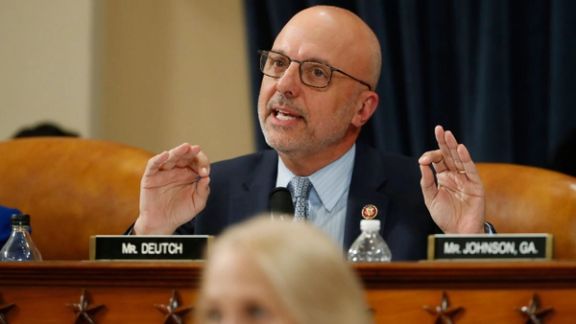
Another member of the Democratic Party has criticized the Biden administration for handling the threat posed by Iran, saying the 2015 nuclear agreement, JCPOA, is not an Iran policy.
Florida Congressman Ted Deutch said that “Iran threatens our allies and partners, and the IRGC funds proxies across the region while pursuing nuclear weapons”.
“Deal or not, we need a comprehensive strategy to lead in combating threats and to ensure Iran never has nukes”, he added, noting that he is glad that Secretary of State Antony Blinken affirmed that.
During a Foreign Relations Committee hearing on Tuesday, Senators from both sides of the aisle told Blinken to walk away from the talks with Iran.
But Democratic Senator Chris Murphy said Thursday that all the measures the United States has taken against Iran have only accelerated the country’s nuclear program.
The Connecticut senator, a supporter of JCPOA. said in a tweet on Thursday that “We tried crippling unilateral sanctions. We tried assassinations and sabotage. All that did was expedite their research program.”
The Biden administration has been holding talks for more than a year with Iran to revive the 2015 nuclear agreement, but the diplomatic process is at a standstill since March. Iran is demanding the removal of its Revolutionary Guard from the US list of terrorist organizations, something the administration has so far not accepted.